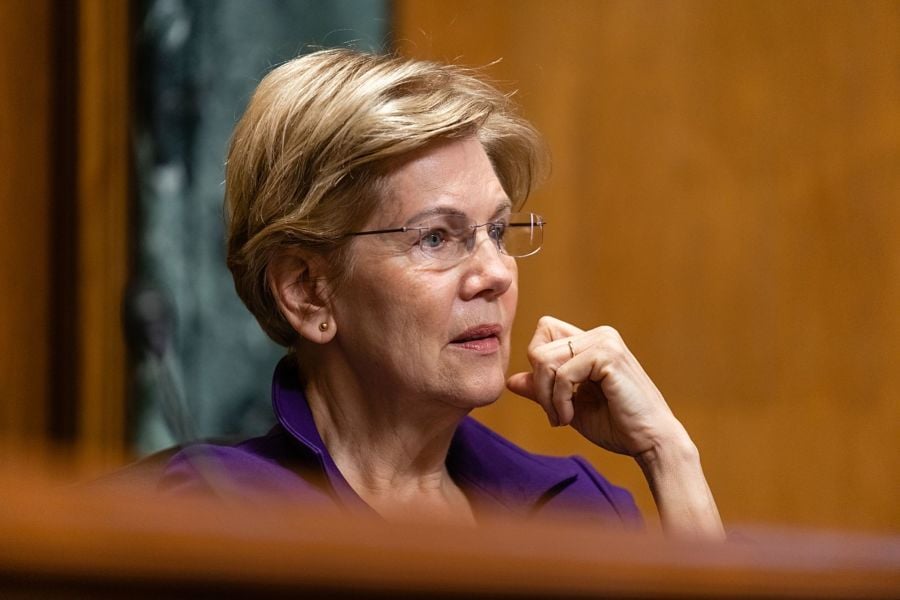

Senator Elizabeth Warren is pressing the nation’s broker-dealer regulator, Finra, on its claim that success in kicking bad actors out of the industry explains why enforcement numbers have plummeted in recent years.
Fines levied by the Financial Industry Regulatory Authority have dwindled to half their recent levels, and the number of enforcement actions last year was the lowest in history, Bloomberg News reported in June. The regulator attributed the decline to improved rules and strategies to weed out repeat offenders.
“The new report appears to indicate that the decline in enforcement is part of a deliberate deregulatory effort,” Warren said in a letter to Finra, a private self-regulatory organization that’s funded by its members.
The Massachusetts Democrat said the enforcement slowdown coincided with the so-called Finra 360 program, launched seven years ago to make the regulator more “effective and efficient.”
That effort saw the integration of two different enforcement divisions at the markets watchdog. It was intended to streamline investigations and information sharing and “enable the organization to vigorously and fairly enforce applicable rules,” Finra spokesperson Ray Pellecchia said in an email.
Warren asked Finra to explain what policy changes were made as a result of that initiative.
“Any suggestion that FINRA360 had the effect of reducing the number of enforcement actions is just dead wrong,” Pellecchia said, adding that such allegations would carry more weight if the industry wasn’t continuing to blast Finra’s enforcement moves.
Industry executives have complained the regulators’ enforcement function “is inflicting unnecessary and excessive costs and uncertainty,” Ann Wagner, a Missouri Republican and senior member of the House Financial Services Committee, said at a December hearing.
Finra barred 3,640 individuals and expelled 130 firms from its membership between 2014 and 2023, according to Pellecchia. Those expulsions included high-risk firms as well as associated individuals who had been the subject of multiple disciplinary actions, moves that would help explain the decline in enforcement actions, Pellecchia said.
“Other high-risk firms withdrew from our membership following considerable regulatory attention,” Pellecchia said. During that period, the regulator’s enforcement actions resulted in $377.9 million ordered to be returned to harmed investors, he said.

Canadian stocks are on a roll in 2025 as the country prepares to name a new Prime Minister.

Two C-level leaders reveal the new time-saving tools they've implemented and what advisors are doing with their newly freed-up hours.

The RIA led by Merrill Lynch veteran John Thiel is helping its advisors take part in the growing trend toward fee-based annuities.

Driven by robust transaction activity amid market turbulence and increased focus on billion-dollar plus targets, Echelon Partners expects another all-time high in 2025.

The looming threat of federal funding cuts to state and local governments has lawmakers weighing a levy that was phased out in 1981.
RIAs face rising regulatory pressure in 2025. Forward-looking firms are responding with embedded technology, not more paperwork.
As inheritances are set to reshape client portfolios and next-gen heirs demand digital-first experiences, firms are retooling their wealth tech stacks and succession models in real time.
